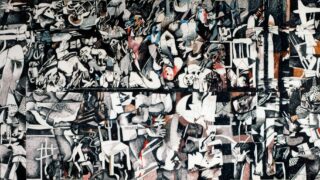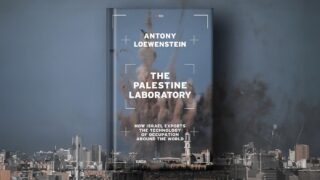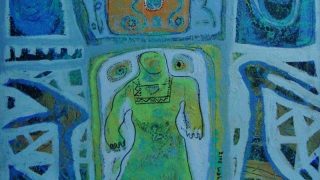The Arab Spring has made prominent a number of phenomena that find their roots in the distinguishing features of the region, especially the Arab Levant. These features are religion (and, more precisely, sect) and oil. Analysis of these two features may help clarify the current situation and the growing chaos.
Steadfastness of oil-monarchic states
Phenomenon One: Some states have been steadfast in the face of the region’s uprisings, which broke out three and a half years ago. Except for Algeria, whose civil war is still grinding in the minds and imaginations of its sons, it seems as though the states that have not been affected by the storm that has shaken the region apply Sharia and are based on a monarchical political system. With the exception of Jordan, which was able to stem the beginnings of the popular movement within its borders with relative ease, all of these states have rentier economies based on oil and gas. It seems at first glance that the “backbone” of the Arab world is based on religion and oil. Supposedly, religion provides coherence and oil secures abundance. This is the best that a ruler can hope for to guarantee his authority and power over his territory.
The rest of the Arab states have been buffeted by civil or internal wars (even if some of them had foreign dimensions), which expressed themselves through sects, clans and nationalities, including old ones like Sudan, Somalia and Lebanon, and new ones like Iraq, Syria, Yemen and Libya. Whether these wars are hot (like Iraq) or cold (like Tunisia), they are being funded by petro-religious states (though not by them alone). Nonetheless, neither religion nor oil has been able to decisively win any battle in any Arab country. Well-funded sects have rather become the basis of division, even though religion and oil sometimes served as ingredients of power and unity.
Do people know their real enemy?
Phenomenon Two: The partial opening of Arab states to globalization and liberalization led to the possibility of their demise. A poor, marginalized, decaying countryside was created by globalization and liberalization. This particular countryside, along with small cities like Homs, Benghazi and Alexandria, guaranteed a popular base for the movements that made up the Arab Spring. This base, however, did not have an “organic” intellectual leadership, so leaderships foreign to it emerged, without any connection to the reality on the ground except through money or diplomatic connections. Most of this leadership was liberal. Its influence came from Western countries or Arab countries in which this leadership originated. This meant that the “people” in Tunisia, Libya, Egypt and Syria pursued the same liberal project that they had destroyed. When the people won, they brought to power representatives who did not really represent them, either socially or economically. This was a historic misunderstanding, which at best paved the way for the return of the old regime (Egypt, Tunisia).
The same “people” who had elected [Mohammed] Morsi voted again for [Abdel Fattah al-] Sisi within a single year. While the former was not able — despite his efforts — to carry out the dictates of the International Monetary Fund (IMF), the latter began to implement them (removing subsidies, the New Nile project). This means that Sisi pursues the same policies that caused the bread revolution [1977 bread riots] during ... [President Anwar Sadat's] rule. How do the Egyptian people accept what they did not accept from [Sadat's successor] Mubarak? Those “revolutions” did not give birth to a single revolutionary idea on the social, economic or political levels, whether they were liberal or Islamic. They either restricted their efforts to giving in to the IMF or tried to build better relations with Israel, or both. This took place in Egypt, Tunisia and elsewhere.
Sects as the impossibility of democracy
Phenomenon Three: There is no overwhelming religious or ethnic majority in the Arab Levant. The sectarian majority in one country is the minority in another. It follows that the sectarian majority in any given country is the only one that demands democracy, because democracy becomes a tool for permanent despotic authority without any possibility of the transfer of power. When a supposedly mutually satisfying electoral law is agreed upon, the strongest sect (or sometimes the strongest tribe or ethnicity) rules the other sects. Any agreement is necessarily temporary pending a change in the internal balance of power as a result of strictly internal factors, as is the case in Lebanon (demographics), or external factors, as is the case in Iraq (the American invasion). As for minorities, they all prefer military rule, which guarantees better protection for them.
The impossibility of political stability built on true democracy means that we can never build a nation. Geography is not a guarantee, since a minority concentrated in any given country is based on a majority in a neighboring country. History does not guarantee cohabitation, as it is full of civil wars. The nation has never been able to solve any such problem. Since many years ago, the country that suffered from a civil war was entrusted to external actors and neighboring states. Therefore, the Sykes-Picot agreement in the region is an exception rather than a historical rule. The rule is permanent civil war with external intervention by those near and far.
Do religion and oil prevent economic development?
Phenomenon Four: The total revenue of the Arab states plus Turkey and Iran (500 million people) does not equal the national income of Germany [80 million people]. If we exclude Gulf states, the national income of this group of states would equal that of France. Non-oil industrial production in the whole region does not exceed that of Belgium and Switzerland. How can this kind of backwardness be explained, despite the abundance of wealth in the region ... ? There are many factors that prevent economic development, most important of which is that collective projects have not been embraced. Rentier states are not pushed to develop their economies more than they have, because they have enough income. They are not interested in investing this financial surplus in other Arab states to develop the economy of the region.
Direct foreign investments in the Arab world are very limited. Even when kings are generous, investments do not amount to any more than several billion dollars, such as the loans and aid given to Egypt, representing 5% of the Gulf’s annual surplus. The remainder is not invested rationally, and its yields are very limited. Profitability does not exceed the interest rates of the treasury bonds of industrialized countries (even if they were not invested in directly), and the yields or rates of profit in Western capitals are much higher.
Rentier states do not have much faith in the states of the region (and in this they may be right), since they do not give them any guarantees. However, the issue is not just the investments of oil states; governments of non-oil states also deserve blame, since most of their investment is limited to real estate (Lebanon, Syria, Egypt). Despite all this, the larger problem is purely economic: The productive energy of modern industry is larger than the consumption capacity of most Arab states. Consequently, any investment in the industrial sector must guarantee unrestricted exports to neighboring states. Therefore, there must be specialization in Arab states to achieve “economy of scale.”
Specialization forces an agreement between states, clans and sects. Disunited societies (based on sects, not law) will not be able to develop. The economic miracle will either be collective, or it will not be at all.
Open space based on economy and law
Because the solution lies not in nations, “military” Arab states have tried for more than 20 years to end Sykes-Picot through projects of political unity, whether by consent (usually) or force (sometimes). These units were not able to achieve the expected renaissance, and when they failed, the way was opened for most of them to fall or for their component states to fragment, despite the exceptional solidarity — and miracle — in the October 1973 war. What we now observe is nothing more than the collapse of Sykes-Picot in a new way. It is a collapse based on chaos and fragmentation along sectarian and ethnic lines. This, naturally, will not lead to the Arab nation’s renaissance. Neither independent states nor unity led to the solution of our society’s problems, and the catastrophic fragmentation through which we are living will not allow the Arab renaissance either.
What is also clear is that democracy, when applied, is a precursor for permanent civil war between sects and ethnic groups (Iraq, Lebanon) or a great farce, as occurred in Egypt or Algeria, since it leads to renewed military rule, which is itself not a solution.
It remains for us to be modest, and to create an open space based on the economy and on “supranational” rights institutions (whose political authority would be greater than that of the local authority of each nation) that guarantee the free flow of people, capital and goods and guarantee human rights, without any effect on national political representation. The interests of all “minorities” (since a minority here is a majority there) will thus be joined together.
Therefore, it will be in no one’s interest to break away from a renaissance project that is greater than the nation. Instead of animosity, competition will prevail to protect the great borders facing external foes. They will guarantee that Gulf capitals invest in the framework of a coherent economic plan, or else we will reach the final phenomenon: the forbidden dream.
Translated by Al-Monitor





